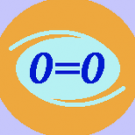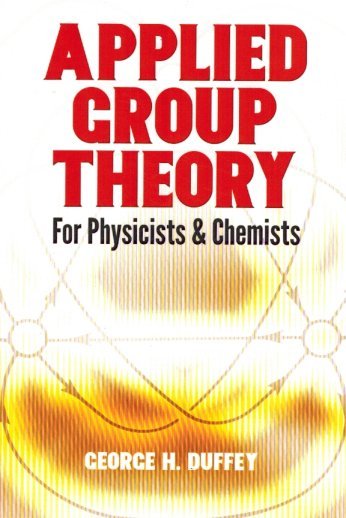-
Posts
17639 -
Joined
-
Last visited
-
Days Won
93
studiot last won the day on November 20 2023
studiot had the most liked content!
Profile Information
-
Location
Somerset, England
-
Favorite Area of Science
applications of physical sciences
-
Occupation
Retired Technical Consultant
Recent Profile Visitors
The recent visitors block is disabled and is not being shown to other users.
studiot's Achievements

SuperNerd (12/13)
2.9k
Reputation
-
studiot started following Creepy "Help me" message?? , is reflected sunlight bad to eye health? , Quantum Algebra and 1 other
-
First I am going to say +1, for actually answering another member. First time that I can remember. Then I am going to say that light reflected off snow can lead to a conditions we call snow blindness. This is not permanent , means that your eye have been looking at a patternless reflection for too long. They will recover after closing them or looking away at something more normal for a while. Photokeratitis (Ultraviolet [UV] burn, Arc eye, Snow Blindness) - College of Optometrists (college-optometrists.org)
-
1) There is no difference. Groups are sets with a suitable associative binary operation. Some groups have additional structure, eg abelian groups, which have a commutativity requirement. Non commutativity is very important in QM and leads to the uncertainty principle. Try this postgrad book. 2) Hopf algebras also explot non commutativity. https://www.theoremoftheday.org/MathsStudyGroup/SeligHopf.pdf
-

Guided evolution (split from Evolution not limited to life on earth?)
studiot replied to Luc Turpin's topic in Speculations
Hey folks it after christmas/newyear so I've gotta give this refreshing bit of 2024 sanity a thumbs up. +1 -

Creepy "Help me" message??
studiot replied to exchemist's topic in Suggestions, Comments and Support
Anything like this ? can you catch a screenshot of your own ? -
How exactly does this address any of my principal points, rather than mocking my attempt as simple examples to help understand them, which you obviously don't. 1) There are several different types of evolutionary process. 2) Not all evolutionary processes involve selection. 3) Selection is itself a complicated process that involves criteria or standards to 'select' against. 4) Darwinian evolution involves what he dubbed Natural Selection, which was another word for the prevailing conditions. 5) For such a process to operate the prevailing conditions must remain sensibly constant for a long enough time. 6) The prevailing conditions can suddenly change (as with the dinosaurs) in the middle of such an evolutionary process.
-
Whilst I agree that selection and evolution can be connected I don't accept that this is always the case. They are separate distinct processes. Change over time is another thing again, which I think too large in scope. Usually the connection is that as small variation of an offspring of a member of a population leads to another slightly different member of that population. For example a smaller or larger elephant with a slightly longer or shorter trunk may have an evolutionary advantage, but is still an elephant. A dinosaur faced with the external event of the chixelub meteor underwent an entirely different change, although top of the then evolutionary tree.
-
Thanks. +1
-
We are all (well nearly all) learning things here. +1 Please note my comment about dialect and the pronunciation of the word bath. Also compare bath and bathilith.
-
So you are using this to preach that you know everything there is to know about these things instead of listening to see what others might know. ? I asked if you know the difference between a scalar and a vector to try to help you you understand what swnasont and I are both saying, but from different viewpoints. The positive and negative convention used in an electric field refers to the direction part of the electric field vector, it does not refer to the magnitude. Charge on the other hand does refer to the magnitude, since charge is a scalar and has no direction.
-
Would that not be artificial selection? I'm sorry I missed this reply. No it would not be artificial , nor would it be selection in the darwinian sense. I am suggestng the definition of the word evolution you are employing is too narrow to cover all possible/conceivable circumstances.
-

The ebb and flow is the result of the rotation of the Earth and the gyres
studiot replied to Fermer05's topic in Speculations
We all know that the Sun, the Earth, the Moon and the terrestrial waters are in motion. None is static. So static is the wrong word to use. We call what you mean by static theory the equilibrium theory and you are correct it was due to Newton, centuries ago. You are also correct that it is a very crude inadequate model, But is does correctly identify the forces involved as a combination of gravitational and rotational and that gravitational forces dominate the force part of the equation, but that rotational speeds dominate the timing part of the equation. A better theory, which also allows for the fact that the rotational axis of the Moon's orbit is not parallel to the Earth's own rotational axis and a few other effects is known as The dynamical theory of tides. But this is still based on Newton's force analysis. As I have shown your figure of 1600 km/hr is approcimately correct. But I have also shown that it does not correctly model the system as the timing of the moon's periodic function is not the same as the mechanical resonant frequencies of the water. Do you understand what this means ? The simplest method of approaching this is to model the hydrographic response as a fourier series rsonant with the lunar driving force, which introduces the humps you mention and use actual observations to calibrate the fourier coefficients to suit. A yet better mechanical model is to consider the lunar driving force as a 'Forcing Function' with a frequency near to the resonant to a non resonant system. Are you familiar with the maths of this ? It produces frequencies not in the oringinal lunar function nor the resonant response of the hydrographic system. So to echo swansont's words Why have you repeated your earlier posting ? What are you trying to achieve here ? -
It doesn't bother me, it was just an oddity that sometimes appears on my screen, like that business of the unidentified notification I reported and everyone tried to tell me was my doing until Capt'n sorted it out. I didn't think to get a screen capture last time it appeared, but I will do next time.
-
Do you understand the difference between a vector and a scalar ? You haven't responded to my statement about this.










